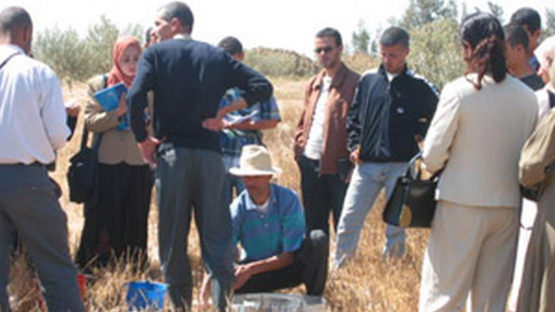The study was carried out by the Institut National du Sol, Irrigation et Drainage (INSID) in the Wilaya of Relizane, one of the five main irrigated schemes in Western Algeria. Deep tillage ploughing in late summer was carried out to increase infiltration capacity and water retention in soil. Similarly drainage system has been installed to provide leaching of salt beyond crop rooting zone. At the same time, three moderately salt tolerance crop species (olives, barley and oats) which can tolerate to a soil salinity of 8 dS m-1 were irrigated with irrigation water of 5 dS m-1 to test their performance under these harsh conditions. Since the implementation of the project, some farmers near the study site have returned to cultivate barley on their lands using the same approach. It is hoped that through this project, an integrated approach to plant, soil and water management practices (identification of salt-tolerant plants of economic value, development of irrigation and drainage technology packages for using saline soils and groundwater) would be adopted.
The project aims to disseminate the knowledge of sustainable use of saline lands and brackish water of using salt tolerance trees and crops in arid lands to improve the environment and produce a biomass that will be useful as food for livestock, fodder, wood fuel, fertilizer, and agrifood.




